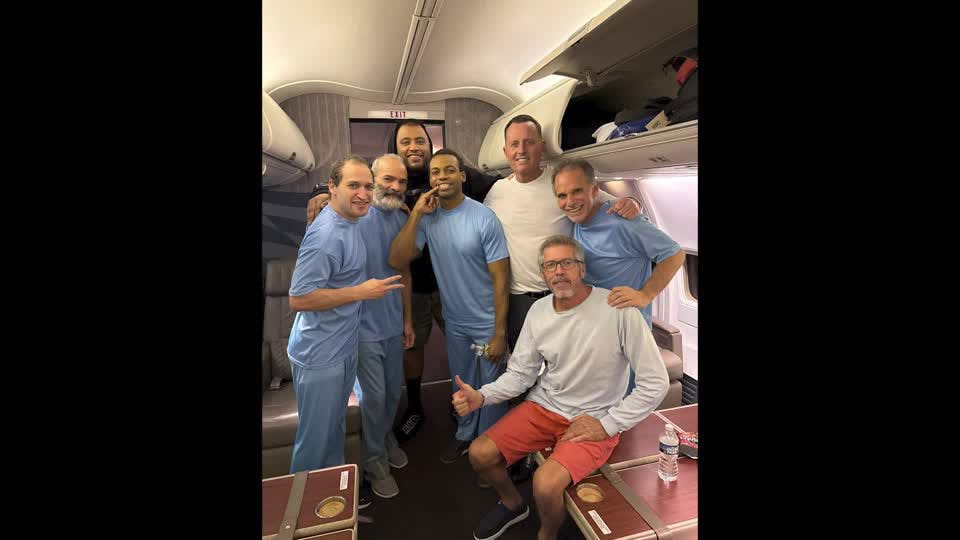Richard Grenell, acting as Special Envoy for President Donald Trump, embarked on a mission to Caracas, Venezuela, to secure the release of American citizens detained by the Maduro regime. This visit, shrouded in a mix of humanitarian concerns and political maneuvering, culminated in the successful return of six Americans to U.S. soil. Grenell’s announcement on social media, accompanied by a photograph of the freed men, some still clad in Venezuelan prison attire, emphasized their gratitude towards President Trump. While the identities of the released individuals remained undisclosed, their liberation signaled a potential breakthrough in the strained relationship between the two nations.
The backdrop for this diplomatic endeavor was the complex and contentious political climate in Venezuela. The U.S. government, along with numerous other countries, has refused to recognize Nicolás Maduro as the legitimate president following a disputed election. Instead, they support the opposition candidate, Edmundo González, whom they believe to be the rightful winner. This stance has further strained relations between the two countries, and the detention of American citizens has become a significant point of contention. The U.S. has consistently called for their unconditional release, while the Venezuelan government has accused them of various crimes, including terrorism and mercenary activities.
The meeting between Grenell and Maduro represented a rare instance of direct engagement between the two governments. While both sides acknowledged the meeting took place in a respectful manner, the specific details of the discussions remained largely confidential. Official statements indicated that a range of topics were addressed, including migration, the impact of U.S. sanctions on Venezuela, and the status of detained Americans. However, U.S. officials were adamant that the release of the Americans was not a bargaining chip and that there was no quid pro quo involved.
The release of the six Americans coincided with another pressing issue on the agenda: the repatriation of approximately 400 members of the notorious Venezuelan gang, Tren de Aragua. The U.S. is seeking to deport these individuals back to Venezuela, emphasizing the unconditional nature of the demand. Claver-Carone, the U.S. Special Envoy for Latin America, reiterated the non-negotiable stance on the repatriation, highlighting the urgency of the matter. While the Maduro government has claimed the gang was dismantled in 2023, the U.S. remains insistent on their return. This issue adds another layer of complexity to the already delicate diplomatic dance between the two countries.
President Trump’s public statements further underscored the strained relationship with Venezuela and his disapproval of Maduro’s leadership. He reiterated his strong opposition to the Maduro regime, citing their mistreatment of both the Venezuelan people and the United States. This context provides a lens through which to interpret Grenell’s mission, highlighting the multifaceted nature of the discussions and the delicate balance between securing the release of American citizens and addressing other critical issues.
Grenell’s visit and the subsequent release of the six Americans mark a significant development in the ongoing tensions between the U.S. and Venezuela. While it remains unclear what specific concessions, if any, were made by either side, the event signals a potential opening for further dialogue. However, the underlying political disagreements and the issue of the Tren de Aragua gang repatriation continue to pose challenges to any substantial improvement in relations. The situation remains fluid, with the future trajectory of U.S.-Venezuela relations hinging on the actions and decisions of both governments in the coming weeks and months.


